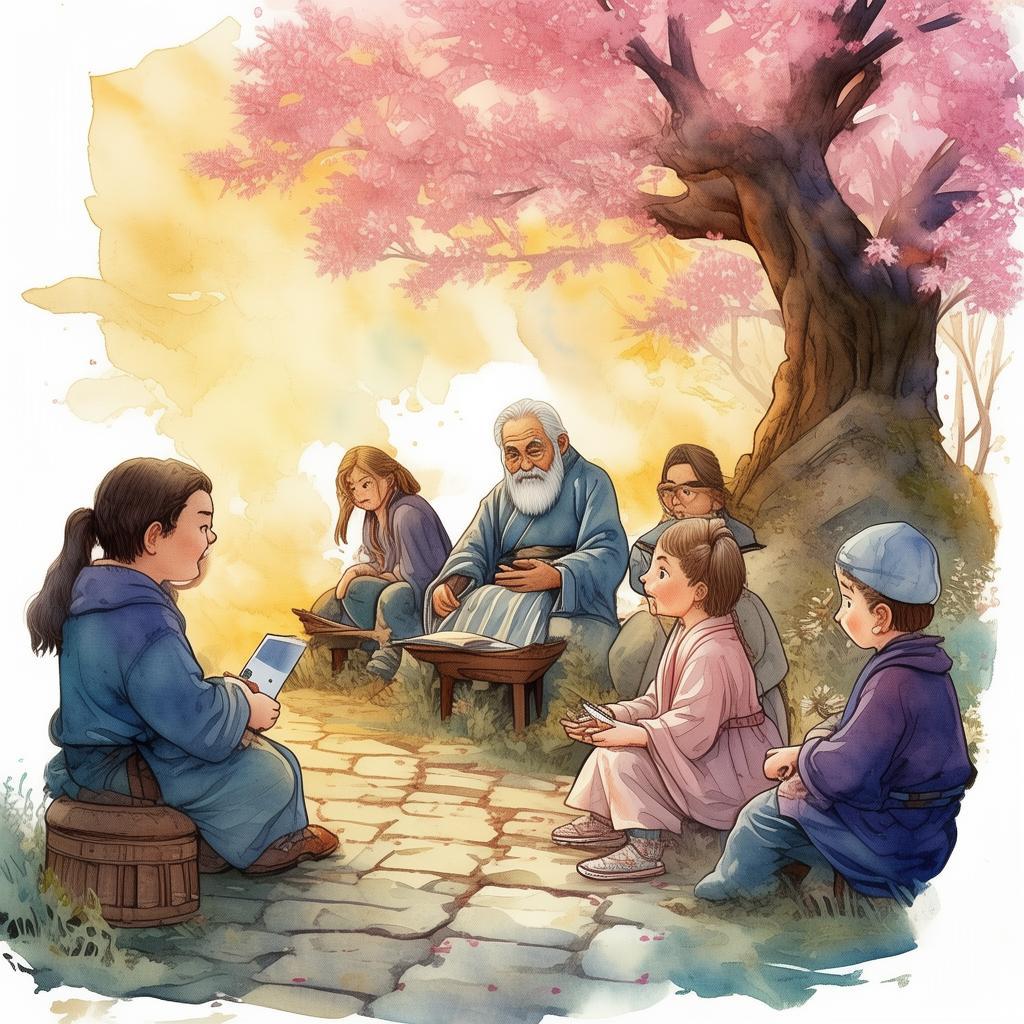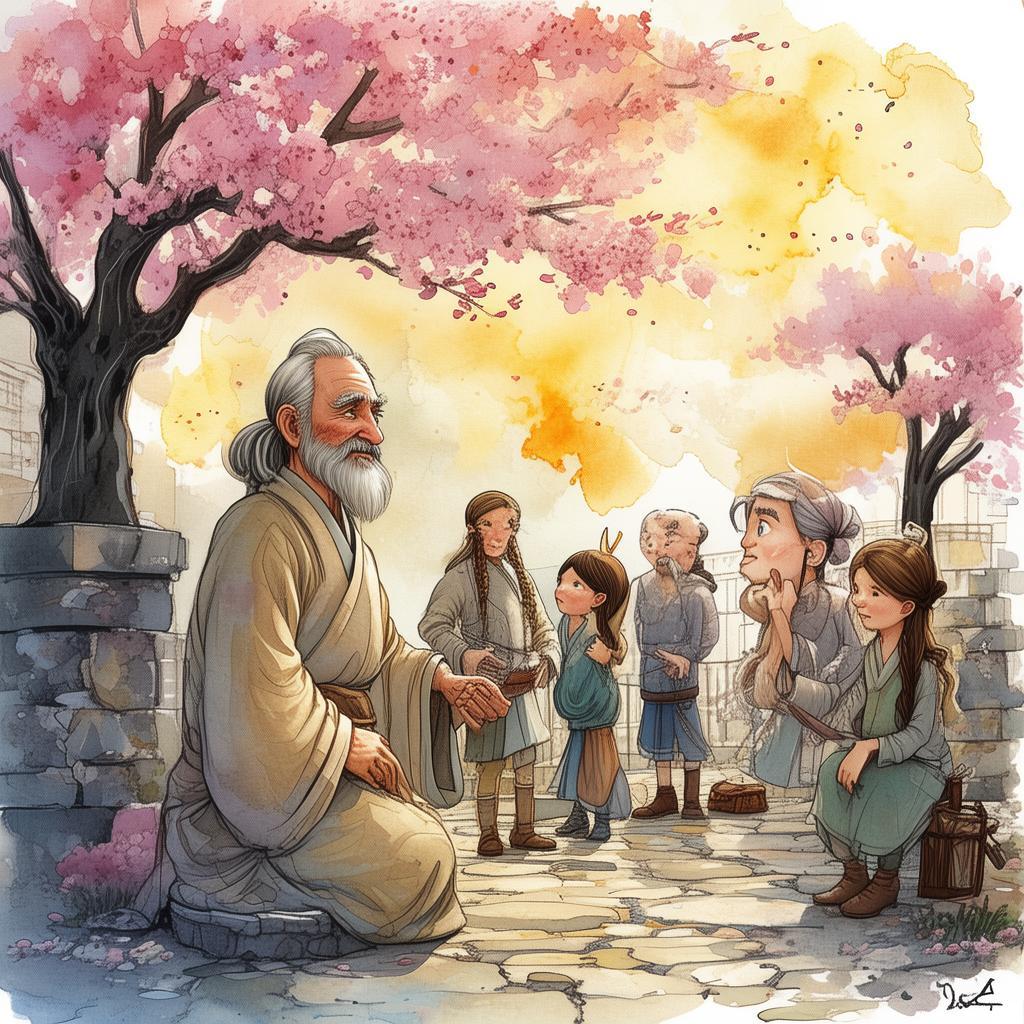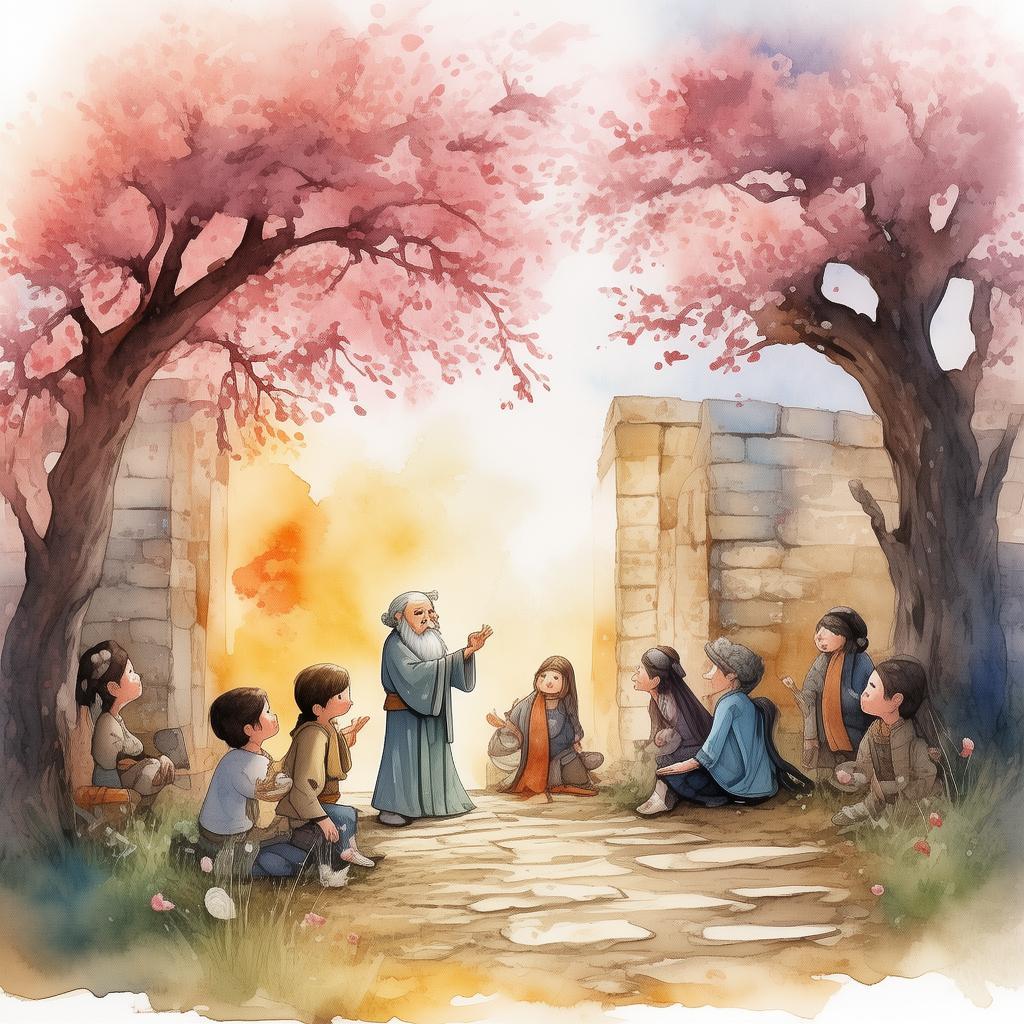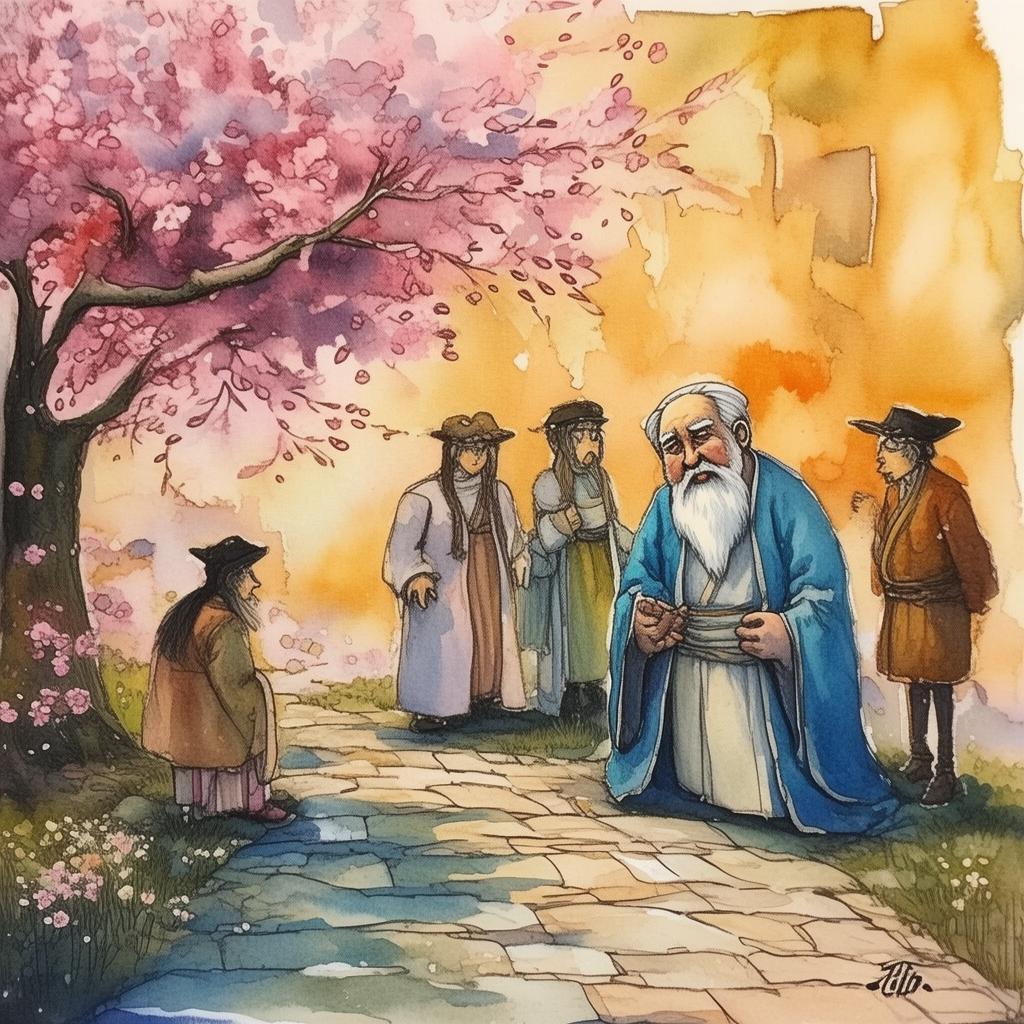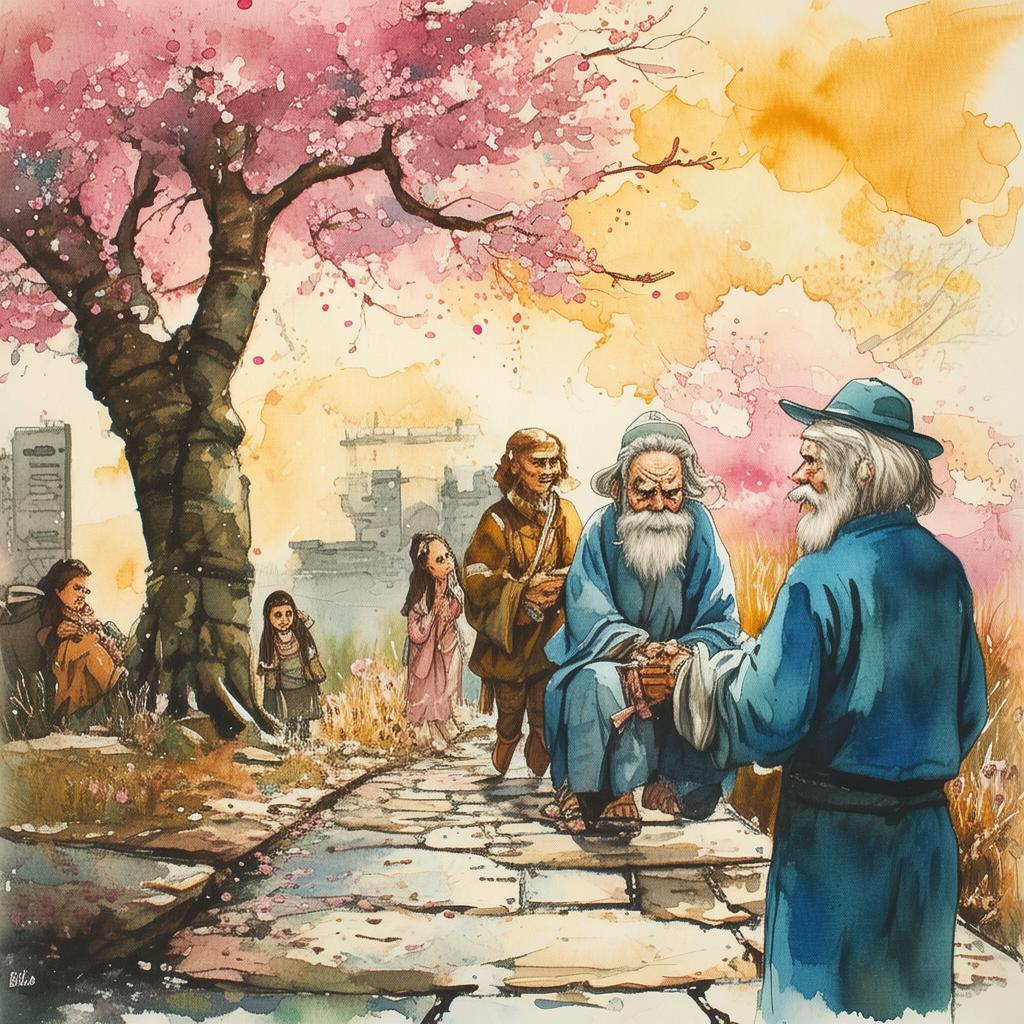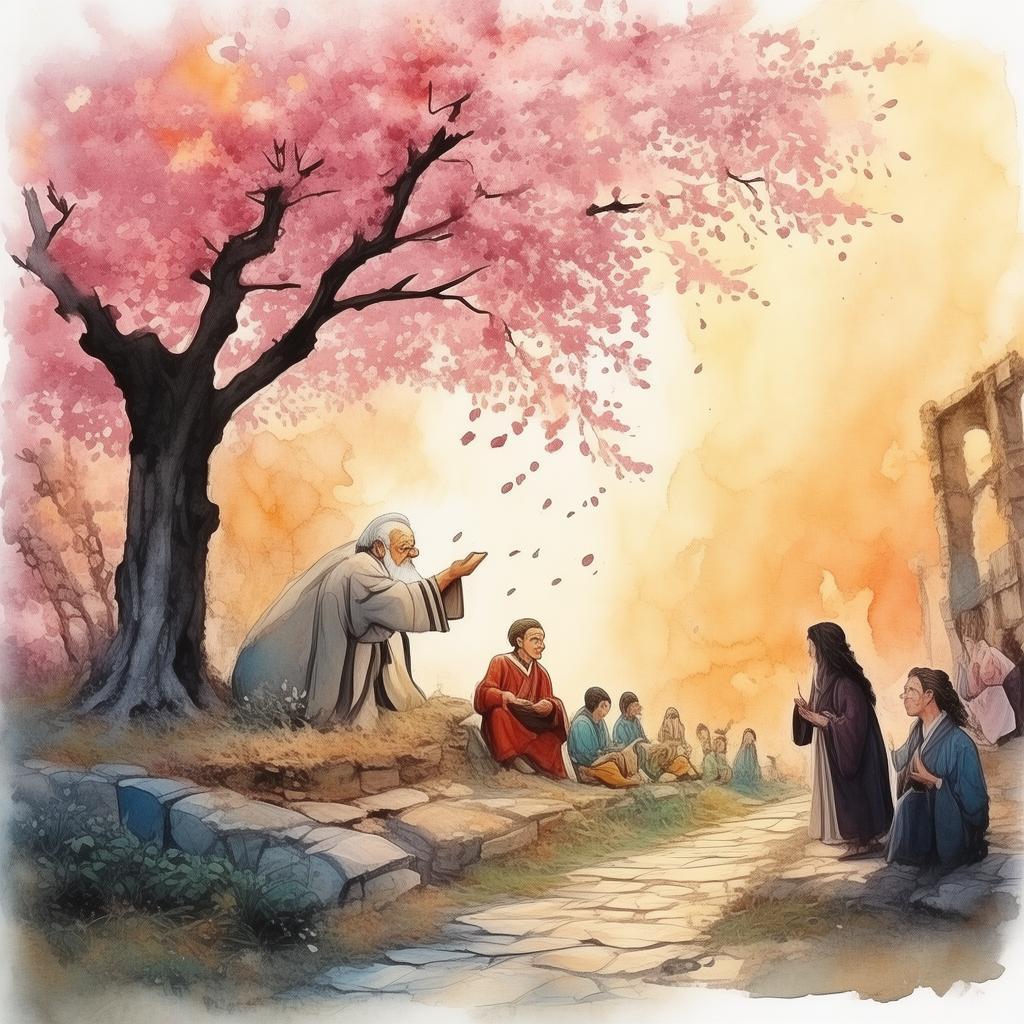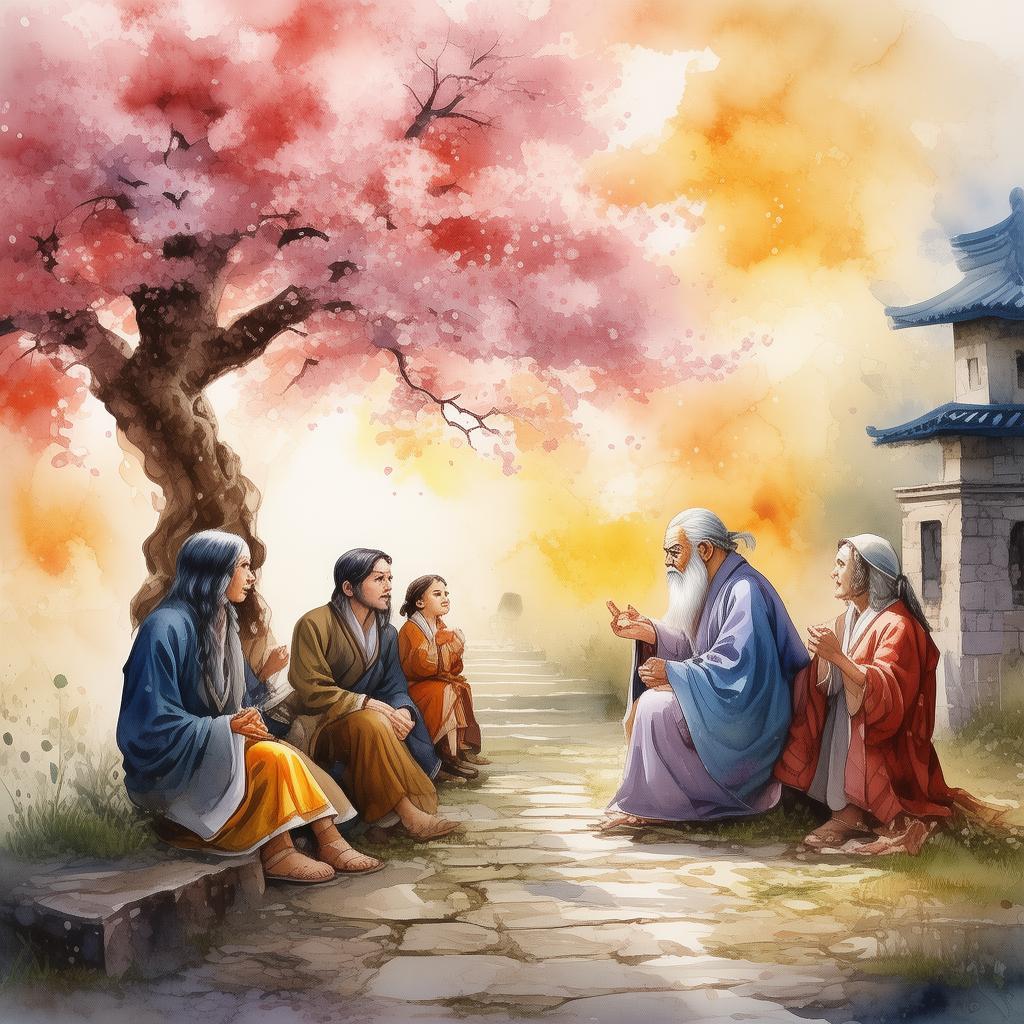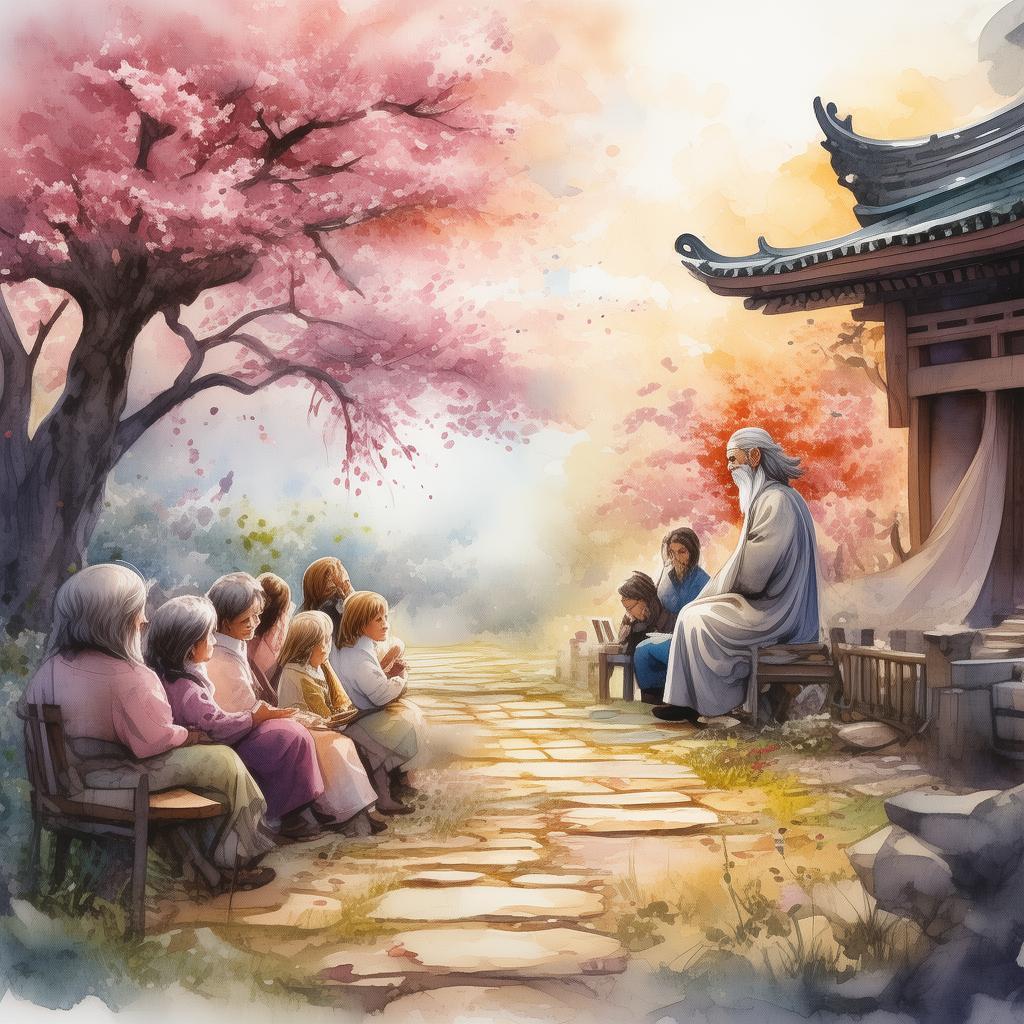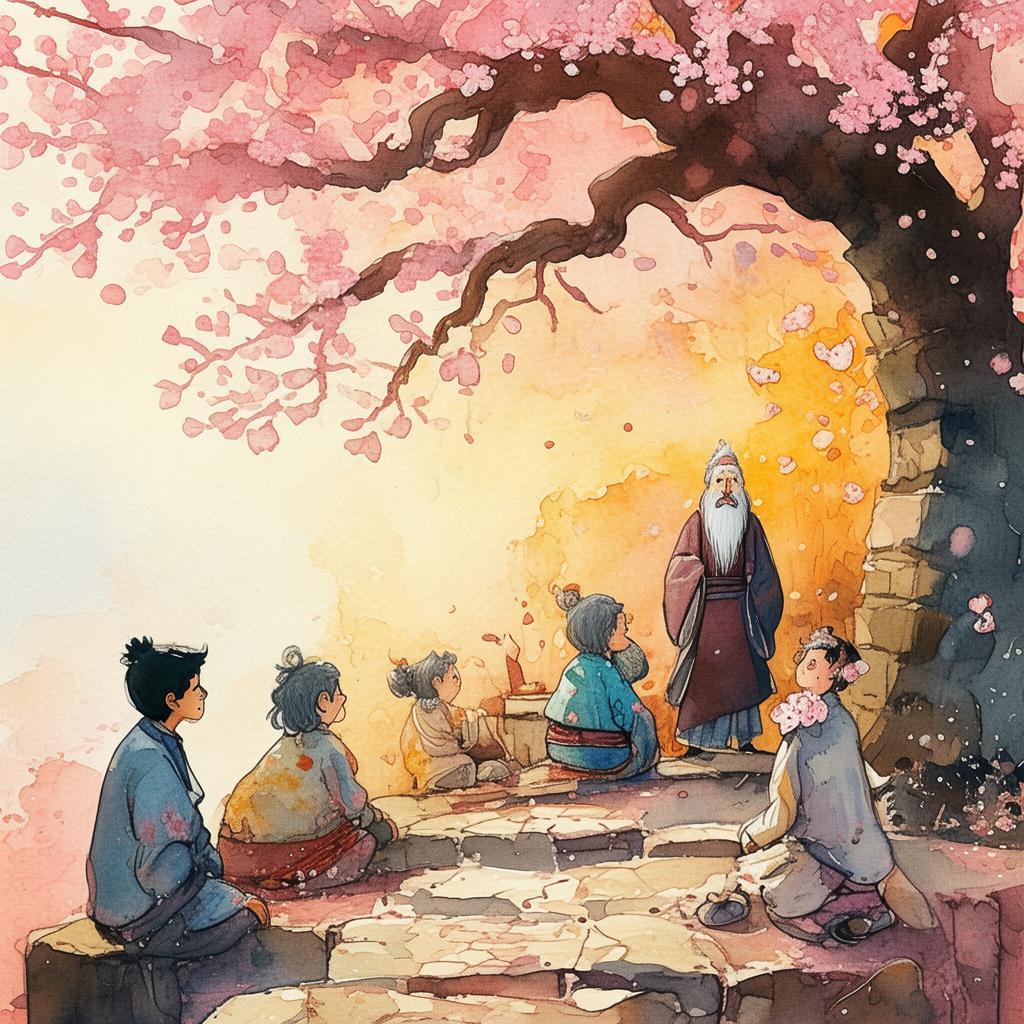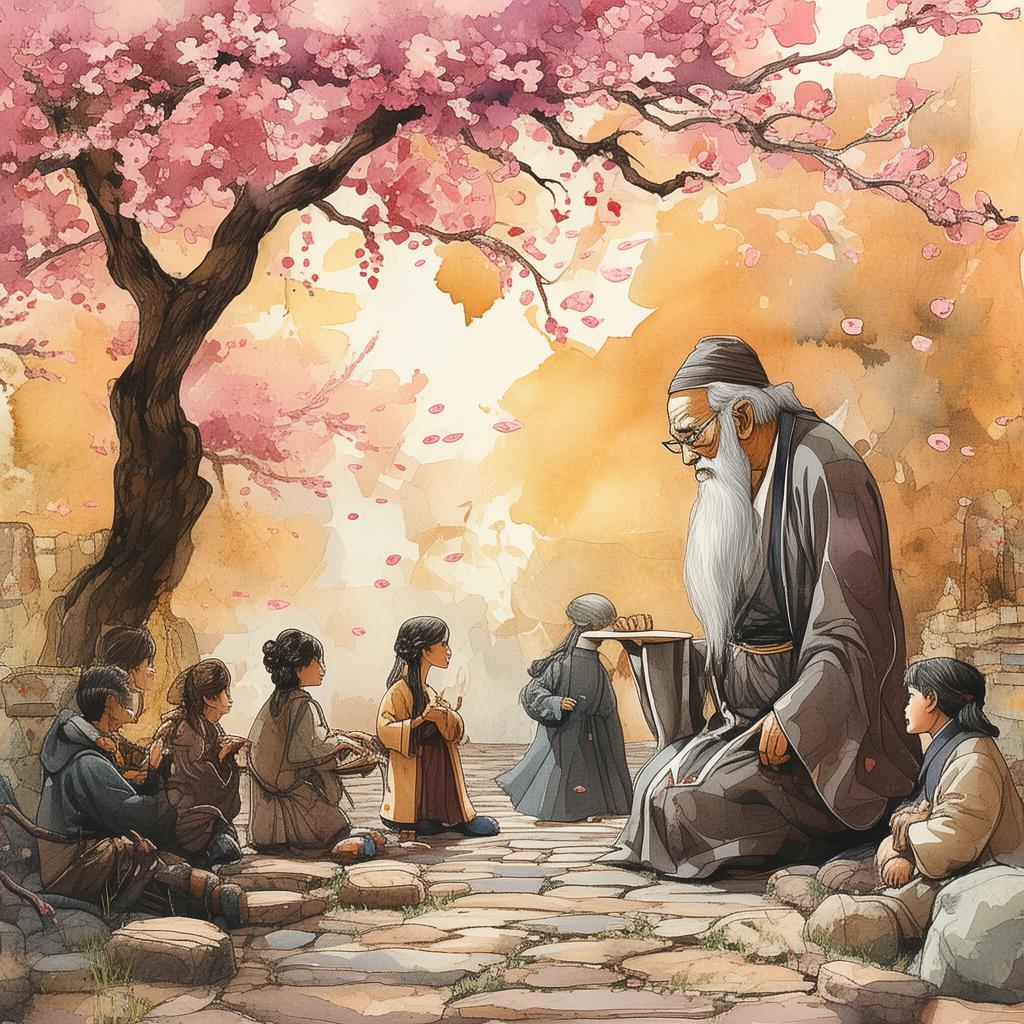Quest for the Four Virtues: The Trial of Loyalty
In the ancient kingdom of Qin, there was a legend of the Four Virtues: Wisdom, Courage, Compassion, and Loyalty. These virtues were said to be the pillars of a just and harmonious society, and those who possessed them were revered as heroes. The kingdom was on the brink of war, and its ruler, the Emperor, sought to find a champion who could embody these virtues and bring peace to the land.
Among the many warriors who sought the title of the Emperor's Champion was a young man named Ming. Ming was known for his exceptional martial arts skills and his unwavering loyalty to his family and friends. However, he knew that his martial prowess alone would not be enough to earn the title. The Emperor's trials were designed to test the true nature of a person's character.
The first trial was a test of Wisdom. Ming was presented with a riddle that seemed impossible to solve. The riddle was a metaphor for the kingdom's current turmoil, and the correct answer would bring peace. Ming pondered the riddle for days, and in the end, he realized that the answer was not in the riddle itself, but in the hearts of the people. By promoting unity and understanding, he believed he could solve the riddle. The Emperor was impressed with Ming's insight and allowed him to proceed to the next trial.
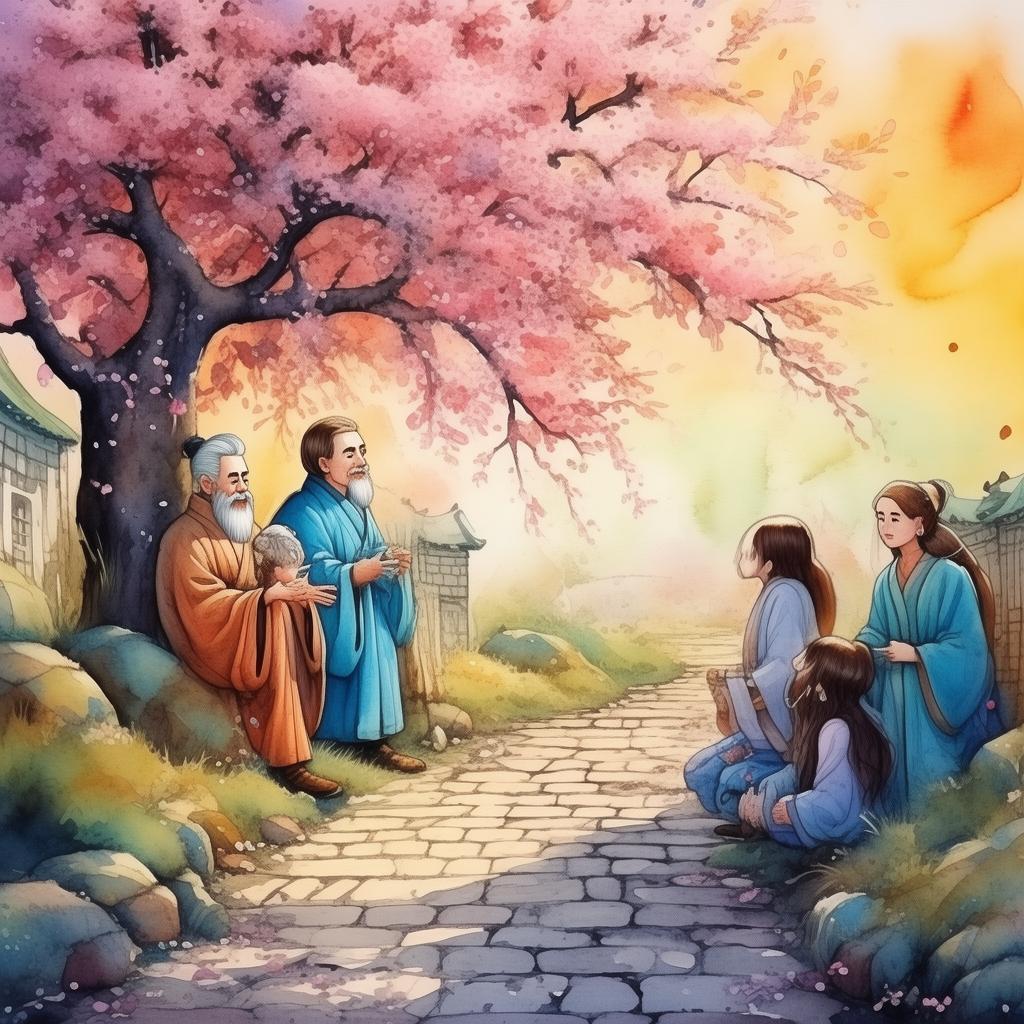
The second trial was a test of Courage. Ming was taken to a battlefield where he was to face a hundred enemy warriors. He knew that he could not defeat them all, but he had to show that he had the courage to face the challenge. As he stepped onto the battlefield, he was met with a wave of arrows. With a swift motion, he blocked them all, showing his agility and skill. Then, instead of fighting, he called out to the enemy warriors, asking them to lay down their arms and join him in seeking peace. Many of the warriors were moved by his words, and a truce was declared.
The third trial was a test of Compassion. Ming was given a village that was suffering from a severe drought. The villagers were desperate, and Ming knew that he had to find a way to save them. He traveled to the mountains, where he found a hidden spring that could provide water for the village. However, the spring was guarded by a fierce dragon. Ming fought the dragon, not for glory, but for the sake of the villagers. He defeated the dragon and brought the spring back to the village, earning the gratitude of the people.
The final trial was a test of Loyalty. Ming was taken to a chamber where he was told that his family had been imprisoned by the Emperor's enemies. He was given a choice: to turn against the Emperor and free his family or to remain loyal to the Emperor and face the consequences. Ming knew that he had to choose loyalty, even if it meant sacrificing his family. He remained steadfast, and the Emperor was moved by his loyalty.
The Emperor declared Ming the new Champion of the Four Virtues. Ming's journey had not only proven his worthiness but had also brought peace to the kingdom. The people of Qin celebrated his victory, and Ming became a symbol of hope and virtue.
Ming's story spread far and wide, inspiring countless others to strive for the Four Virtues. His journey was not just a quest for personal glory, but a quest for the betterment of his kingdom and the world. And so, the legend of Ming, the loyal warrior, lived on, a testament to the power of virtue and the strength of the human spirit.
✨ Original Statement ✨
All articles published on this website (including but not limited to text, images, videos, and other content) are original or authorized for reposting and are protected by relevant laws. Without the explicit written permission of this website, no individual or organization may copy, modify, repost, or use the content for commercial purposes.
If you need to quote or cooperate, please contact this site for authorization. We reserve the right to pursue legal responsibility for any unauthorized use.
Hereby declared.
